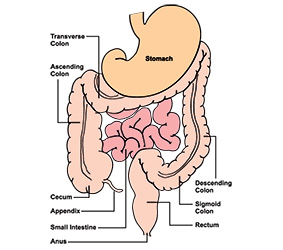There are several things you can do to lower your risk of colorectal cancer:
Limit the Amount of Alcohol You Drink
People who regularly drink 25 grams (or about 2 standard drinks) of alcohol a day have a 20% increased risk of getting colorectal cancer.
People who drink heavily also may not eat a healthy diet. As a result, they may lack nutrients like vitamin D, calcium and folate that appear to help protect against colorectal cancer.
Do Not Smoke
Smoking is linked to many types of cancer and other diseases. There is no safe kind of tobacco product and no safe amount of smoking.
It’s never too late to benefit from becoming smoke-free. If you are already a non-smoker, keep yourself safe by avoiding exposure to other people’s tobacco smoke (second-hand smoke).
It may take several tries to quit smoking. If you’ve tried to quit in the past and have started smoking again, don’t give up. Each time you try to quit, you get closer to your goal of being smoke-free forever.
To find information on how to quit smoking visit:
Limit the Amount of Red and Processed Meats You Eat
Eating 100 grams of red meat (about the size of a deck of cards) or 50 grams of processed meat a day raises your risk of colorectal cancer by up to 20%.
Eat Foods High in Fibre
A high-fibre diet may help lower your risk of colorectal cancer. Fibre helps keep the colon healthy by speeding up the removal of stool (poop).
You can get fibre from whole grains, vegetables and some fruit. Vegetables and fruit can also help:
- prevent nutritional deficiencies
- provide you with natural sources of cancer-fighting vitamins
- help you reach or stay at a healthy weight
Maintain a Healthy Weight
If you’re not at a healthy weight, losing even a small amount of weight can help lower the risk to your health. Small changes in your diet and physical activity may be enough to help you become healthier.
Stay Active
Being physically active can increase your health, well-being and quality of life, and reduce your risk of cancer. Being “active” doesn’t mean just formal exercise programs — lots of everyday activities, such as gardening, housework, dancing, or walking to work or the store, also count. Many are activities you can do with family or friends.
Check if You Are at High Risk
There are risks you inherit from your family. The genes you are born with and whether or not your family members have had cancer both play a part in your risk of getting cancer. Genetic testing can tell if you have genetic changes (mutations) that increase your risk of certain cancers, like colorectal cancer.
Although they are relatively rare, some genetic conditions are strongly related to colorectal cancer. They include:
- familial adenomatous polyposis (FAP) and attenuated FAP
- MYH-associated polyposis (MAP)
- Peutz-Jeghers syndrome
- Lynch syndrome
- juvenile polyposis
Ontario’s colorectal cancer screening program, ColonCancerCheck, does not screen people who are at high risk of colorectal cancer because of genetic conditions. The program focuses on screening people at average or increased risk.
Talk with your doctor or nurse practitioner to see if you would benefit from genetic assessment.
For more details on genetic testing, visit the Canadian Cancer Society.

